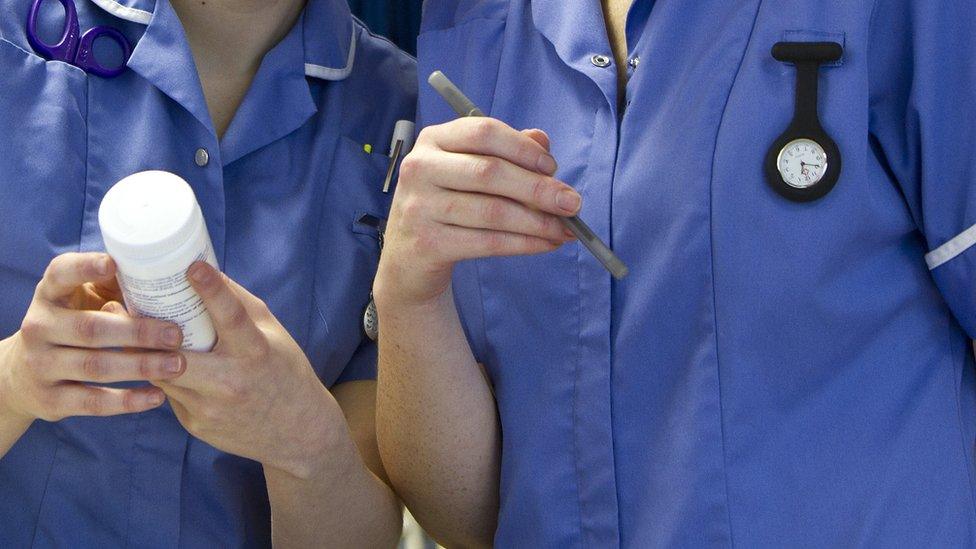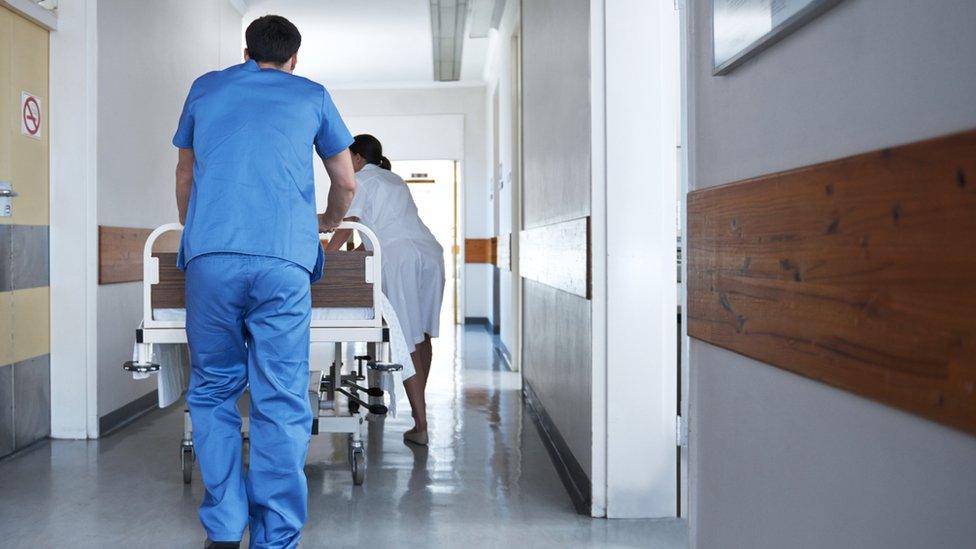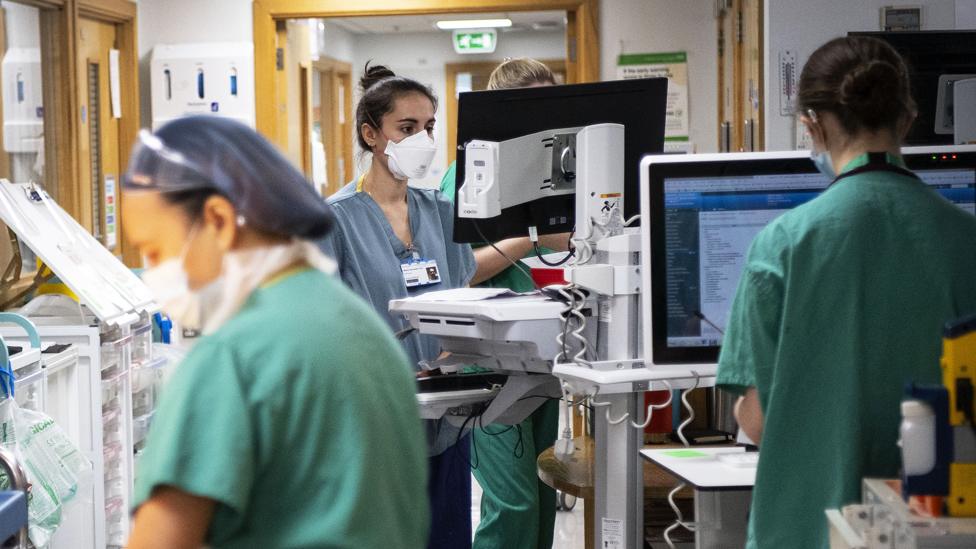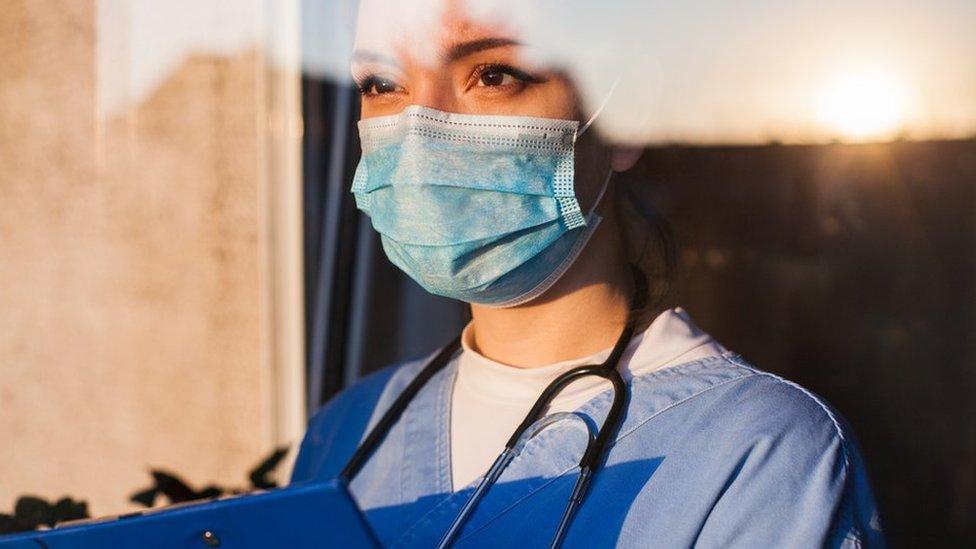Colchester Hospital 'not always safe' due to national shortage
- Published

The CQC report said there was an 8.6% vacancy rate and 6.25% sickness rate in the medical care service in October
A major hospital did not always have enough medical staff to keep patients safe because of national shortages, inspectors have said.
The Care Quality Commission (CQC) dropped its rating for medical care services at Colchester Hospital from "good" to "requires improvement".
There was an 8.6% vacancy rate and 6.25% sickness rate in its medical care services in October 2022.
The hospital said it had already acted on the CQC recommendations.
"The service's staffing arrangements weren't always sufficient to meet the needs of people using it," said Antoinette Smith, the CQC's head of hospital inspection in the East of England.
"The East Suffolk and North Essex NHS Foundation Trust (ESNEFT) must find ways to prevent this compromising the care it provides."
Staff absence
Inspectors visited six of the hospital medical care wards on 3 November last year after receiving "concerning" information about safety and treatment.
While the rating for medical care dropped down, the overall rating for the hospital, and the ESNEFT, remained at "requires improvement".
The report referenced, external "national shortages of nursing and support staff and elevated levels of staff absence" which meant "the division did not always have enough staff to keep patients safe".
Inspectors noted there was an ongoing recruitment campaign at Colchester.
A report by MPs last year warned England was short of 12,000 hospital doctors and more than 50,000 nurses and midwives.
The most recent data showed a 9.7% vacancy rate across NHS England, external.

Colchester Hospital is run by the East Suffolk and North Essex NHS Foundation Trust, which also manages Ipswich hospital
The Colchester inspection found staff did not always "effectively" communicate discharge information; did not always comply with infection control; and that patient records were not always stored securely.
There were four incidents of clostridioides difficile infection on one ward in October, inspectors said.
Ms Smith said ESNEFT must ensure staff complete all required training and improve infection control.

The chief nurse for Colchester Hospital said managers welcomed the report
ESNEFT chief nurse Dr Giles Thorpe said his team welcomed the report and was already "putting in place many of the recommendations".
"Like all NHS Trusts throughout the country, our staff have been managing many pressures and I am very grateful for all of their hard work," he added.

Find BBC News: East of England on Facebook, external, Instagram, external and Twitter, external. If you have a story suggestion email eastofenglandnews@bbc.co.uk, external
Related topics
- Published26 January 2023
- Published21 January 2023

- Published11 November 2022

- Published25 July 2022
